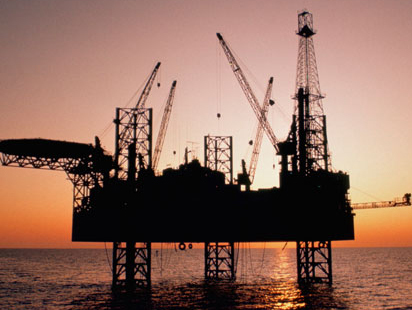
Blackstone Group LP, the biggest alternative-asset manager, is “scrambling” to invest more than $10 billion in energy companies after the price of oil plunged, the firm’s president said.
“Our people are scrambling and trying to come up for air,” Tony James said on a call with reporters today discussing Blackstone’s fourth-quarter earnings.
“Everything just got hammered at once. There’s clearly some very interesting values in the credit markets just buying debt at big discounts to face and getting equity-like returns.”
Oil’s 58% tumble since June has rippled through markets, erasing more than $15 billion from the portfolios of more than a dozen private equity firms, according to data compiled on 28 publicly traded energy producers.
The leaders of the private equity firms also say it’s creating opportunities to invest in distressed oil producers. High-yield bonds tied to energy companies have slumped 17% since oil prices peaked.
“The recent freefall in energy prices will prove to be relatively short-term,” James said. “So we view this as a good buying opportunity.”
Blackstone and its biggest peers, including Carlyle Group LP, KKR & Co. and Apollo Global Management LLC, have raised more than $15 billion recently for energy investing. Blackstone, in addition to closing a $4.5 billion energy fund this month, is asking its clients for more than $1 billion to buy bonds of troubled energy producers and to provide rescue financing, a person with knowledge of the plans said this week.
“Emergency sales of assets or companies looking to either sell themselves or get an equity infusion — we are seeing all of that,” said James.
Blackstone’s credit unit, GSO Capital Partners, earlier this month committed as much as $500 million to fund oil and gas development for Linn Energy LLC.
Under the five-year agreement, Blackstone would fund drilling programs at locations selected by Houston-based Linn for an 85% working interest in the wells.
James, 63, spoke while addressing Blackstone’s fourth-quarter earnings. The results, while lower than the firm’s record quarter a year earlier, exceeded analysts’ estimates, driven by sales of private equity holdings.
Blackstone also reported assets under management of $290 billion, the highest among peers.
Economic net income, a measure of earnings excluding some costs, declined 6% to $1.45 billion, or $1.25 cents a share, from $1.54 billion, or $1.35 a share, a year ago, Blackstone said.
Analysts had expected earnings of 92 cents a share, according to the average of 16 estimates in a survey.
Blackstone fell 1.4% to $36.22 at 10:13 a.m. in New York. The stock has risen 6.9% this year and closed at an all-time high Wednesday in New York.
Blackstone is looking to invest in US shale operators and international oil exploration and development while avoiding ultra deep-water drilling and heavy oil, David Foley, the firm’s head of energy deals, said last month.
Shale production in the US is largely resilient to lower oil prices, Foley said.
Heavy oil is a dense form of the substance that requires extra processing treatments such as heating and dilution, making it more expensive to produce.
Apollo last week registered a fund that will invest in less liquid or illiquid energy assets. The filing didn’t disclose how much the New York-based firm plans to raise.
Carlyle, based in Washington, has about $7 billion dedicated to investing in energy companies and assets, co-founder David Rubenstein said last month. That includes a first-time international energy fund and North American energy and power funds.
KKR, run by Henry Kravis and George Roberts, is seeking as much as $3 billion for its second special situations fund to provide financing to troubled companies, including those hurt by plunging oil prices, two people with knowledge of the plans said last week.
For more oil and gas news click here.
Recommended for you
